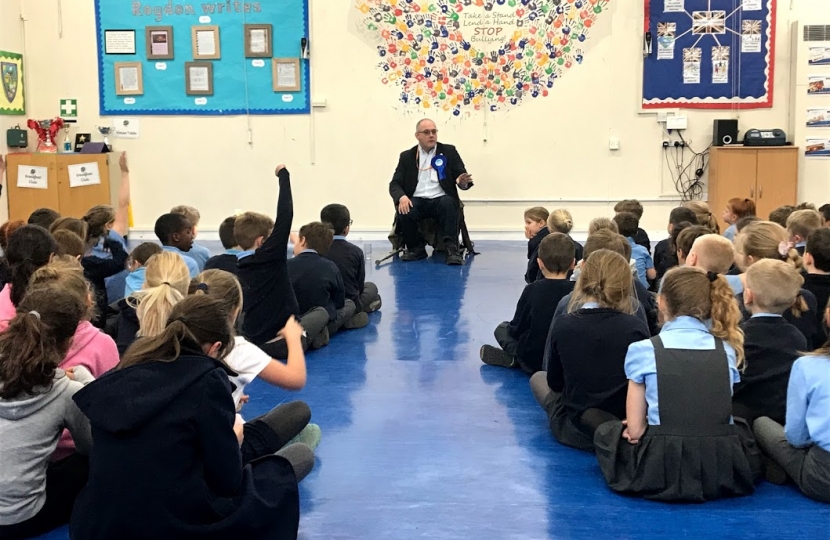
First published in the Catholic Herald, 24th October 2020:
On Wednesday night, for the first time as a Conservative MP since my election in 2010, I voted for a Labour party motion in the House of Commons. As I am sure Marcus Rashford would understand, voting for the opposition is a bit like when the Manager asks you on a Saturday to play, and you say: “sorry I’m playing for the Away team, as their striker”.
I regard myself as a loyal Conservative, and am a supporter of Boris Johnson.
However, on the issue of providing Free School Meals to hungry children over the school holidays (at least as long as the pandemic continues), I felt that I had to vote on principle.
In my own constituency of Harlow, I have seen the extraordinary – and miraculous – work of our foodbank, run by the Michael Roberts Charitable Trust. Gary Knott, a Christian, sadly passed away last year. He taught me a great deal about compassion, giving and the extent of hunger in my constituency and across the country.
Between January and September this year, the Harlow Foodbank alone has given out 118 tonnes of food – nearly double the tonnage on last year.
But, of course, it is relatively easy to champion benevolent policies and call for the sending of taxpayers money to fit the bill. However, in my speech in the House of Commons on Wednesday evening, I sought to explain the cost-benefits of investing in a long-term strategy to combat child food hunger.
According to Kellogg’s, the grip of hunger could potentially cost the English economy at least £5.2 million a year through lost teaching time spent on dealing with the needs of hungry pupils. We also know from serious academic studies by Leeds University that children who eat breakfast regularly achieve an average of 2 GSCE grades higher than children who don’t. Further, the Institute for Fiscal Studies found that children in schools with breakfast clubs made two months additional academic progress over the course of a year compared to children in schools with no breakfast provision.
The evidence shows that if you feed children properly, you increase educational attainment and boost life chances – all the while, saving the Government costs in the long-run.
Moreover, the funding for these policies need not require new money. I am asking that the Government redistributes the £340 million/year revenue from the Coca-Cola Tax (or Sugar Tax), which already hits families on lower incomes, and uses it for child hunger programmes.
To the Government’s credit, there are a plethora of existing schemes to tackle food insecurity, spanning the departments. However, the lack of any long-term strategy means these are disparate and often operating with cash-guzzling inefficiencies.
In September, for example, just 47.3% of eligible mothers were receiving Healthy Start vouchers. Just by digitising the scheme, getting rid of the archaic enrollment process and bureaucracy (registration requires printing, completing and posting a paper application form) and launching a campaign to boost awareness, we could dramatically increase uptake and ensure that targeted support, which is already available, is actually reaching those in need. This is not rocket science.
I understand the Treasury’s “floodgates” argument: if you make Free School Meals available for the holidays now, this will never cease. Clear demarcations as to what is parental or state responsibility must be laid out.
What I am arguing for, is that this support be available whilst we are reeling from the economic impacts of the pandemic. It is worth noting that the Office for Budget Responsibilities forecasts a rise in joblessness of 13.2%, potentially making 356,500 more adults food insecure.
Rather than patchwork initiatives, the Government should have a national long-term plan to combat child hunger. It should ensure that the cost of buying and preparing a healthy and nutritious meal (in line with its own Eatwell Guide) is taken into account in the calculations of Universal Credit, as the House of Lords Committee on Food’s report, Hungry for Change, recommended. Breakfast Clubs should be extended to every disadvantaged school and the Holiday Activities and Food Programme, giving children access to academic catch-up, mental health and wellbeing support, sports and, of course, a hot meal.
I’m not normally a big fan of celebrities wading into policy debates. There are plenty who loudly vocalised their concerns about environmental issues, and continued to fly around the world on private jets. But I believe Marcus Rashford to be different. He has experienced hunger as a child (relying on foodbanks and the goodwill of neighbours or even his football coaches) and wants to change the world. Why shouldn’t he?
Even though we, Conservatives, may not agree on every proposal, the Prime Minister should sit down with Rashford and his Task Force of big name brands and supermarkets to work out a plan to address the state of child food insecurity.
Additionally, it is not good enough for these conglomerates just to sit on the Task Force and reap the good PR, if the Government are the only ones coming up with the goods. These are the very same businesses that remain the only ones to be, seemingly, untouched by the economic havoc wreaked by Covid-19. They should provide match-funding, or other financial support, for food hunger programmes. This is not just the responsibility of the Government and the taxpayer, it is the responsibility of big business, too.
To me, implementing a long-term plan to end child hunger is a no-brainer. Feeding children properly brings a cost-benefit to the Government. It boosts education outcomes. It eases the financial and mental health pressures on millions of parents on low incomes.
I hope very much that the Prime Minister and the government can make combating child food hunger a priority so that we really help struggling families with the cost of living.
